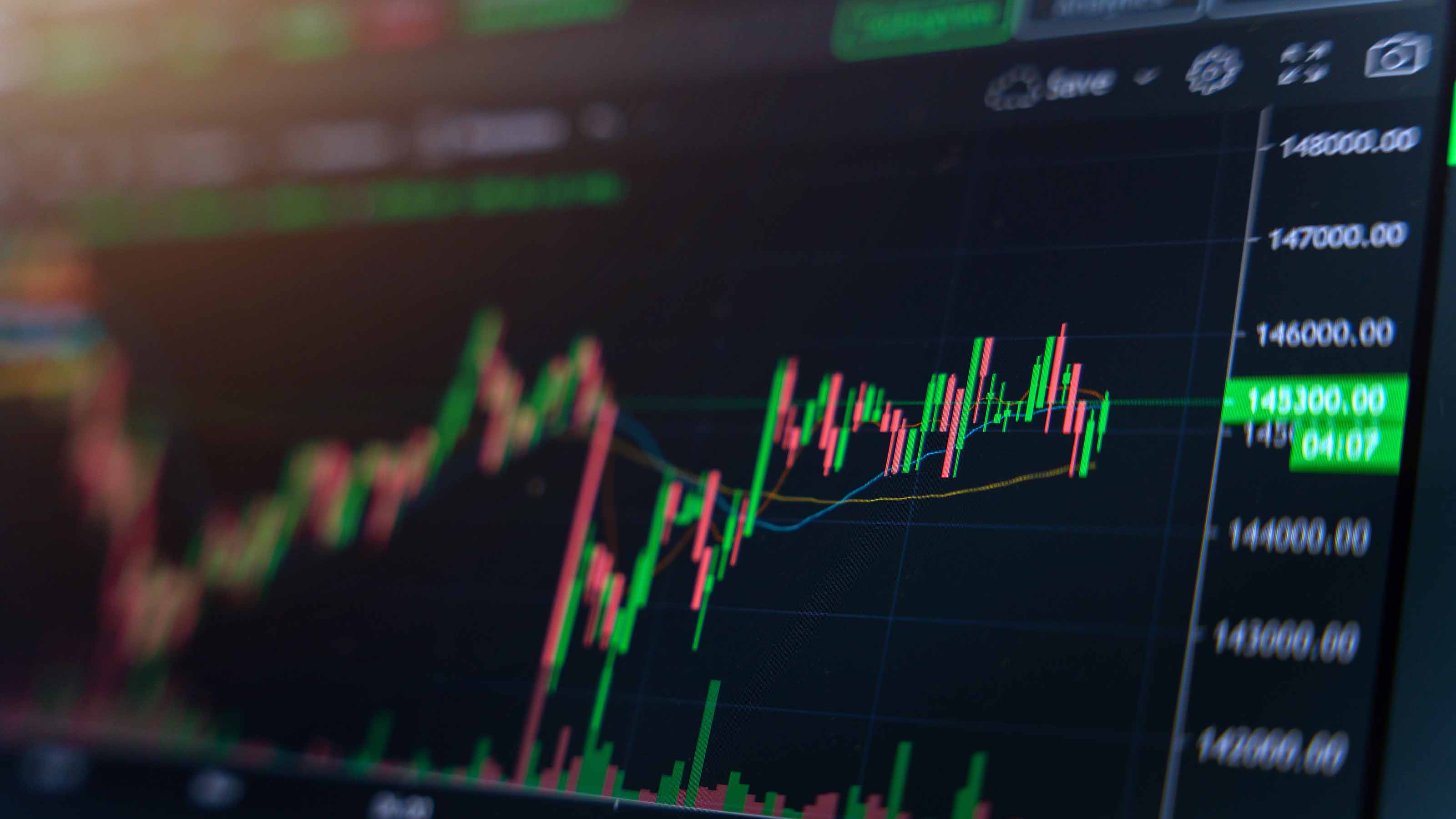7 of Wall Street's Most Heavily Shorted Stocks
"Short interest" is one of the most interesting pieces of stock data that you might pay little or no attention to.


Profit and prosper with the best of Kiplinger's advice on investing, taxes, retirement, personal finance and much more. Delivered daily. Enter your email in the box and click Sign Me Up.
You are now subscribed
Your newsletter sign-up was successful
Want to add more newsletters?

Delivered daily
Kiplinger Today
Profit and prosper with the best of Kiplinger's advice on investing, taxes, retirement, personal finance and much more delivered daily. Smart money moves start here.

Sent five days a week
Kiplinger A Step Ahead
Get practical help to make better financial decisions in your everyday life, from spending to savings on top deals.

Delivered daily
Kiplinger Closing Bell
Get today's biggest financial and investing headlines delivered to your inbox every day the U.S. stock market is open.

Sent twice a week
Kiplinger Adviser Intel
Financial pros across the country share best practices and fresh tactics to preserve and grow your wealth.

Delivered weekly
Kiplinger Tax Tips
Trim your federal and state tax bills with practical tax-planning and tax-cutting strategies.

Sent twice a week
Kiplinger Retirement Tips
Your twice-a-week guide to planning and enjoying a financially secure and richly rewarding retirement

Sent bimonthly.
Kiplinger Adviser Angle
Insights for advisers, wealth managers and other financial professionals.

Sent twice a week
Kiplinger Investing Weekly
Your twice-a-week roundup of promising stocks, funds, companies and industries you should consider, ones you should avoid, and why.

Sent weekly for six weeks
Kiplinger Invest for Retirement
Your step-by-step six-part series on how to invest for retirement, from devising a successful strategy to exactly which investments to choose.
"Short interest" is one of the most interesting pieces of stock data that you might pay little or no attention to. But this little metric of negative sentiment, while popular among traders, can be valuable even to buy-and-hold investors who never want to place a single bearish bet.
If you believe a stock will rise, you buy it. Easy. But what if you're bearish on a company's prospects and want to profit off that belief? A popular technique is short selling: To sell a stock short, you borrow shares so you can immediately turn around and sell them. You wait for shares to fall in price, then buy them back and return those shares to the lender. Your profit is the difference between the price you sold and the price you bought back.
But that gamble can go wrong – to the delight of bullish investors. Short sellers incur losses when the stock's price goes higher. Also, time is against you when you short a stock, because you pay interest when you borrow shares. If you want to exit your short trade, you have to buy back shares, which in turn drives the stock price higher. That might force other short sellers to cut their losses, leading to a virtuous cycle of buying called a "short squeeze."
That's why short interest (how many shares are currently sold short to bet against a company) matters. There's no concrete level, but anything above 10% of the float, which is the number of shares available for public trading, is worth watching. If you're a conservative, buy-and-hold investor who hates volatility, you might want to avoid stocks with high short interest. If you're an aggressive investor, however, you might consider buying these stocks in the hope that a small bit of positive news will trigger a short squeeze, netting large returns in a short time.
Here, we'll look at seven heavily shorted stocks to watch. These companies have short interest ranging anywhere from 14% to 96%, and many of them are the kinds of hot-moving growth stocks that are typical among short-selling targets.
Data is as of Feb. 18. Short interest data provided by S&P Global Market Intelligence.

Hormel
- Market value: $28.5 billion
- % of float sold short: 14.2%
Wait. That Hormel (HRL, $48.26)?
Yes. This is the same Hormel that slings Spam, Skippy peanut butter and Natural Choice deli meat, and that's frequently included in top consumer staples stocks lists. And it's the same Hormel you know from the Dividend Aristocrats – 64 dividend stocks that have grown their payouts for at least a quarter-century. (HRL boasts 54 consecutive dividend hikes.)
So, why the relatively high short interest in this blue-chip stock?
Hormel has been feeling the effects of an African swine fever (ASF) outbreak in China, a massive pork market. The company recently reported a 3% year-over-year decline in its 2019 full-year earnings, and higher input costs in China, as well as Brazil, were among the reasons cited.
Despite this weakness, as well as additional worries about the Chinese market brought about by the coronavirus outbreak, HRL shares slowly but surely continue to climb. The stock is up only 12% over the past year, versus 21% for the broader market, but Hormel nonetheless sits at all-time highs. As a result, HRL shares are fairly expensive, at 26 times analysts' estimates for forward-looking profits and nearly 3 times trailing 12-month sales.
Hormel hardly looks like a stock on the brink of disaster. Short sellers simply might believe that HRL is overextended and pricing in a perfect-case scenario that may or may not play out.

Tesla
- Market value: $155.7 billion
- % of float sold short: 15.6%
A year ago, most of the headlines surrounding electric-vehicle maker Tesla (TSLA, $858.40) had to do with the fact that its shares hadn't gone anywhere in two years, that it was heavily in debt and short on cash, and that Elon Musk might be a significant PR danger to his own company.
Fast-forward to today. TSLA stock has more than doubled since the start of 2020. Shares have more than quintupled since bottoming out in July 2019. Some of that action has been attributed to more bullish developments, including the opening of a Gigafactory in China and rising global vehicle deliveries that set quarterly records. In fact, Tesla has already experienced something of a short squeeze. Tesla's short interest was more than 30% as recently as half a year ago, but many short sellers were forced to exit their positions by purchasing shares.
You can chalk up some of the more recent gains to "fear of missing out" (FOMO). This is when people find out about a stock or other investment that's soaring, so they pile in simply because they don't want to miss out on "the next big thing," regardless of whether its fundamental financials are attractive or not. This is similar to what happened during the 2017 spike in Bitcoin.
But Tesla also is being driven by pure optimism in a company that is not only changing the face of the automotive industry, but has numerous growth opportunities across several markets.
Bernstein analyst Toni Sacconaghi on Feb. 18 called Tesla the "ultimate 'possibility' stock" and wrote that it has "significant addition optionality" in the battery, solar and self-driving industries. He hiked his price target from $325 per share to $730, which is well below current levels, but it's difficult to value the stock using traditional metrics. Sacconaghi even writes that TSLA isn't "unprecedentedly expensive," and that given its excellent growth, "the scarcity of such a profile inevitably commands a premium, especially in this market."
The flip side? If this is a bubble, the pain could be severe for those who buy at the top. Numerous analysts have piled in with Sell and Hold calls over the past few weeks, citing price targets anywhere between $300 and $800.
This is a difficult call, even for the pros.

Chewy
- Market value: $11.5 billion
- % of float sold short: 22.5%
- Chewy (CHWY, $28.92) is among a growing number of pure-play pet stocks that are banking on continued growth in what people, here and abroad, are willing to spend to keep their furry friends healthy and happy.
Chewy, for the uninitiated, sells pet food, toys and other supplies online, and it has built up a very faithful following. Roughly 90% of its revenue comes from repeat customers, which tells you just how sticky the offering is. In fact, Amazon.com (AMZN) and Chewy combine to account for 90% of online spending on pet supplies, both with a roughly equal share.
And that, perhaps, is the fear.
Chewy, which went public in June 2019 at $22 per share, has grown its revenues by 146% between its fiscal years ended in 2017 and 2019. But it continues to sustain considerable losses, and analysts don't see that changing anytime soon. Moreover, Amazon – which is an existential threat to dozens of companies – already matches Chewy in the space and could be an even larger risk should it make a concerted effort to dominate online pet sales.
CHWY stock has mostly been listless since its first day of trading, when it popped to around $35 per share. But shares did show signs of life in December after the company's quarterly revenues beat analyst expectations.
Still, a healthy population of bears continues to bet against the pet retailer, indicating real doubt about its near-term prospects – but providing fuel for a short squeeze should its next quarterly results prove its doubters wrong.

Virgin Galactic
- Market value: $5.9 billion
- % of float sold short: 29.1%
Richard Branson's Virgin Galactic (SPCE, $30.30) pulled off an initial public offering (IPO) in late October 2019, becoming the first commercial spaceflight company to trade on the public exchanges.
It's ultimately a space tourism firm, but Virgin Galactic also could profit off the expansion of its own technologies in this utterly experimental space.
The offering really didn't make waves early on; in fact, SPCE lost more than a third of its value over its first month or so of trading. But speculative traders and growing interest in this space race among Virgin, Elon Musk's SpaceX and Amazon CEO Jeff Bezos' Blue Origin, have driven shares 162% higher in 2020. It's up 38% in the past five trading days alone.
This, for a company that hasn't even gotten off the ground yet (it says it's preparing for its final stages of test flights). It plans on selling tickets at $250,000 a pop when it finally does, but it still expects to be unprofitable for at least the next two years.
In this case, Virgin's gains aren't a product of shorts getting squeezed out – bearish investors are growing in number as the stock shoots higher. It's possible they think a $6 billion market value is too much for a company that hasn't launched a single commercial flight – in an industry that UBS, in 2019, projected would hit $3 billion by 2030.
The bulls would argue that the potential is much bigger, and that Virgin Galactic's leadership and board – which includes numerous airline and aerospace executives, and even a former NASA chief of staff – put SPCE in an enviable position to profit off the final frontier.

Dillard's
- Market value: $1.6 billion
- % of float sold short: 66.7%
Betting against department stores has been a winning proposition. Investors who bet against the likes of JCPenney (JCP), Macy's (M) and Sears (SHLDQ) have done quite well for themselves over the past five years.
- Dillard's (DDS, $63.22), however, has been a chore.
Dillard's is a primarily mall-based retailer that operates roughly 260 primary locations as well as 30 clearance centers across 29 states. As you'd expect, that number has dwindled over the past few years, but the company has been surprisingly stable. Revenues actually grew year-over-year in the fiscal year ended February 2019, and the year before that. Same-store sales – an important retail metric that typically measures revenues in stores open at least a year – have been flat through the first nine months of its fiscal 2020.
Shares haven't been great, but they're up 11% over the past three years – light-years ahead of the 50%-95% declines for its aforementioned peers. And Dillard's has even managed to more than double its dividend since 2017.
Nonetheless, short bets have exploded over the past five years, with short interest surging from just 4% of DDS's float in 2015 to about two-thirds of the float today. And perhaps for good reason. The analyst community expects Dillard's to finish fiscal 2020 with a 1.4% decline in revenues and a 34% hit to profits. They expect DDS to essentially stand still, operationally, in fiscal 2021.
Dillard's might indeed carve out a place in this market for itself, but just note that you won't get paid to hang around to find out. Despite its recent dividend growth, DDS shares yield less than 1% at current prices.

Peloton
- Market value: $7.6 billion
- % of float sold short: 84.0%
- Peloton (PTON, $27.08) is an exercise equipment company, but one that's utilizing technology and subscription services to the fullest. Its $2,250 exercise bikes and $4,300 treadmills not only command a lot of money up front, but also boast screens that display video classes and other content from its $40-per-month subscription plan.
While the company famously took flack for its cringe-worthy Christmas ad, the real concern is skepticism over just how much it can wring out of a limited market. In October 2019, MKM Partners analyst Rohit Kulkarni wrote that if Peloton could penetrate 10% of U.S. households with incomes above $150,000, it would reach 1.5 million households. The problem? It had already sold 564,000 units in the U.S. as of June 30.
As a result, Peleton hasn't done much since coming public in September 2019 at $29 per share, and in fact, it currently trades below its IPO price.
The analyst community is quite bullish, with 16 of 18 analysts tracked by TipRanks doling out Buy-equivalent ratings over the past three months, and a price target of $37.12 that implies 37% upside from current prices. Numerous pros came out in support of the stock after fiscal Q2 earnings were released in February, citing optimism about Peloton's great engagement, subscriber growth (96% year-over-year) and raised subscriber and revenue guidance.
But short sellers have gathered en masse. They've typically used 60% to 70% of the float to bet against PTON stock over its brief publicly traded life, but that has grown to 84% currently. Their concern? For one, revenue growth, while still red-hot, is slowing – fiscal Q2 sales, while up 77%, decelerated from more than 100% growth in the previous quarter. Also, Douglas C. Lane managing partner Sarat Sethi told CNBC's Squawk Box that cash burn continues to be an issue.
If the bears are wrong, however, the resulting short squeeze could be powerful.

GameStop
- Market value: $267.6 million
- % of float sold short: 96.1%
Video game retailer GameStop (GME, $4.06) has long had a healthy short crowd, typically occupying anywhere between 25% and 50% of its available shares over the past half-decade. They've been rewarded, too. GME shares have plunged by nearly 90% since the start of 2015, and there's little to indicate that a turnaround is right around the corner.
GameStop has been bled out by a number of trends. Big-box stores such as Best Buy (BBY), Walmart (WMT) and Target (TGT) have all bitten into GameStop's sales over the years. Online retailers such as Amazon haven't added to the pain. But the industry itself is turning against GameStop, increasingly shifting toward direct downloads or streaming options and away from physical discs and cartridges.
GameStop's revenues have waffled over the past decade, but they're certainly headed in the wrong direction of late. The company posted $9.4 billion in sales in fiscal 2015; analysts expect just $6.5 billion in revenues for the fiscal year ending this month. GME finally eliminated its dividend in June to save precious cash that in theory could be used to turn things around.
Shares have plunged by 33% in 2020 alone, largely on the back of miserable holiday-season sales results. GameStop said global revenues for the nine-week holiday period ended Jan. 4 declined by 27.5% year-over-year, and it lowered its full-year revenue outlook. "The accelerated decline in new hardware and software sales coming out of Black Friday and throughout the month of December was well below our expectations, reflective of overall industry trends," GameStop CEO George Sherman said in a release.
This isn't a case of short sellers waiting for a stock to fall from the sky. Think of this more as vultures starting to circle. With GME already this low, the shorts are literally betting on the company's worst-case scenario: bankruptcy.
Profit and prosper with the best of Kiplinger's advice on investing, taxes, retirement, personal finance and much more. Delivered daily. Enter your email in the box and click Sign Me Up.
Kyle Woodley is the Editor-in-Chief of WealthUp, a site dedicated to improving the personal finances and financial literacy of people of all ages. He also writes the weekly The Weekend Tea newsletter, which covers both news and analysis about spending, saving, investing, the economy and more.
Kyle was previously the Senior Investing Editor for Kiplinger.com, and the Managing Editor for InvestorPlace.com before that. His work has appeared in several outlets, including Yahoo! Finance, MSN Money, Barchart, The Globe & Mail and the Nasdaq. He also has appeared as a guest on Fox Business Network and Money Radio, among other shows and podcasts, and he has been quoted in several outlets, including MarketWatch, Vice and Univision. He is a proud graduate of The Ohio State University, where he earned a BA in journalism.
You can check out his thoughts on the markets (and more) at @KyleWoodley.
-
 The New Reality for Entertainment
The New Reality for EntertainmentThe Kiplinger Letter The entertainment industry is shifting as movie and TV companies face fierce competition, fight for attention and cope with artificial intelligence.
-
 Stocks Sink With Alphabet, Bitcoin: Stock Market Today
Stocks Sink With Alphabet, Bitcoin: Stock Market TodayA dismal round of jobs data did little to lift sentiment on Thursday.
-
 Betting on Super Bowl 2026? New IRS Tax Changes Could Cost You
Betting on Super Bowl 2026? New IRS Tax Changes Could Cost YouTaxable Income When Super Bowl LX hype fades, some fans may be surprised to learn that sports betting tax rules have shifted.
-
 The 24 Cheapest Places To Retire in the US
The 24 Cheapest Places To Retire in the USWhen you're trying to balance a fixed income with an enjoyable retirement, the cost of living is a crucial factor to consider. Is your city the best?
-
 Stock Market Today: Nasdaq Nabs Longest Weekly Win Streak Since 2019
Stock Market Today: Nasdaq Nabs Longest Weekly Win Streak Since 2019A busy week closed out on a quiet note, with the major indexes making relatively modest moves Friday.
-
 5 Stocks to Sell or Avoid Now
5 Stocks to Sell or Avoid Nowstocks to sell In a difficult market like this, weak positions can get even weaker. Wall Street analysts believe these five stocks should be near the front of your sell list.
-
 Best Stocks for Rising Interest Rates
Best Stocks for Rising Interest Ratesstocks The Federal Reserve has been aggressive in its rate hiking, and there's a chance it's not done yet. Here are eight of the best stocks for rising interest rates.
-
 The Five Safest Vanguard Funds to Own in a Volatile Market
The Five Safest Vanguard Funds to Own in a Volatile Marketrecession The safest Vanguard funds can help prepare investors for market tumult but without high fees.
-
 The 5 Best Inflation-Proof Stocks
The 5 Best Inflation-Proof Stocksstocks Higher prices have been a major headache for investors, but these best inflation-proof stocks could help ease the impact.
-
 5 of the Best Preferred Stock ETFs for High and Stable Dividends
5 of the Best Preferred Stock ETFs for High and Stable DividendsETFs The best preferred stock ETFs allow you to reduce your risk by investing in baskets of preferred stocks.
-
 What Happens When the Retirement Honeymoon Phase Is Over?
What Happens When the Retirement Honeymoon Phase Is Over?In the early days, all is fun and exciting, but after a while, it may seem to some like they’ve lost as much as they’ve gained. What then?

